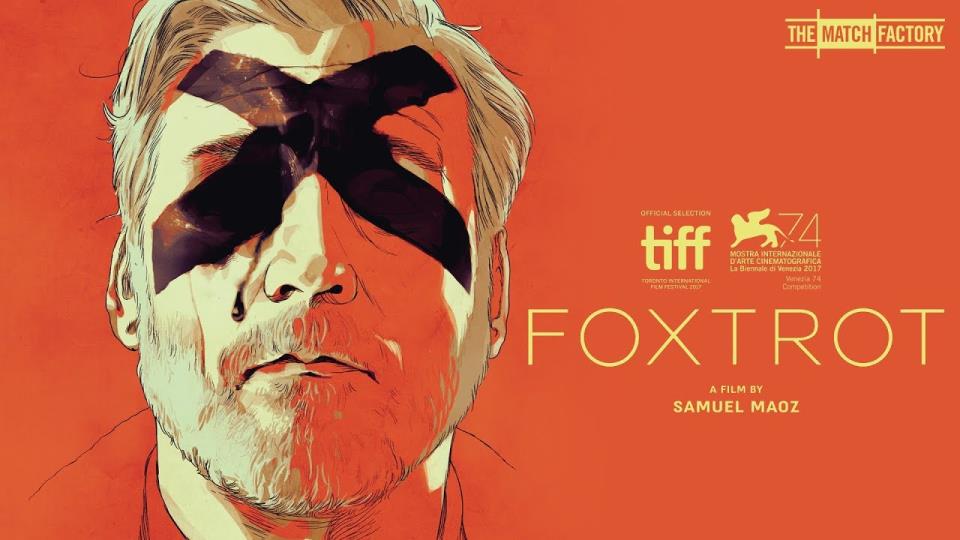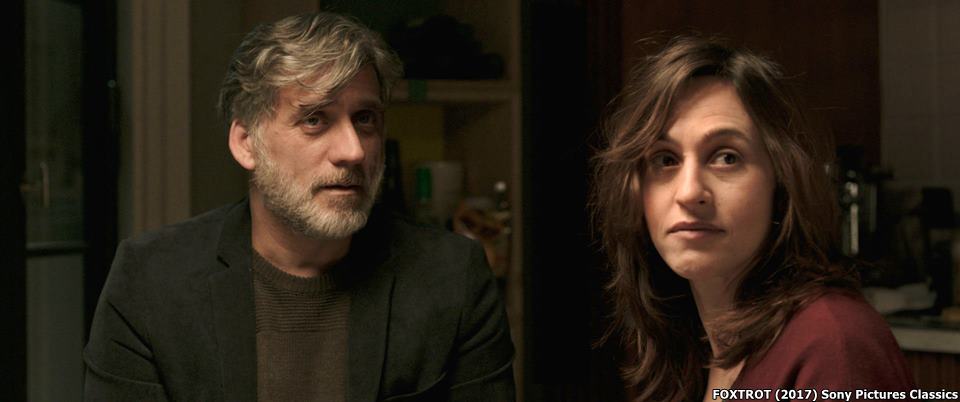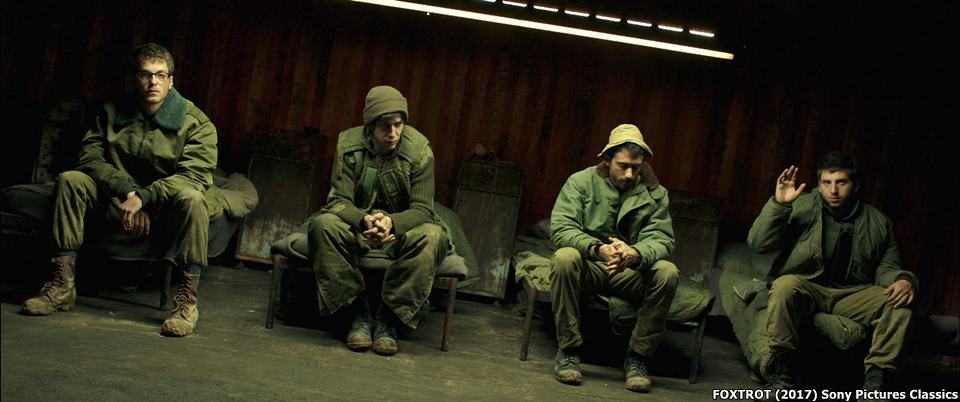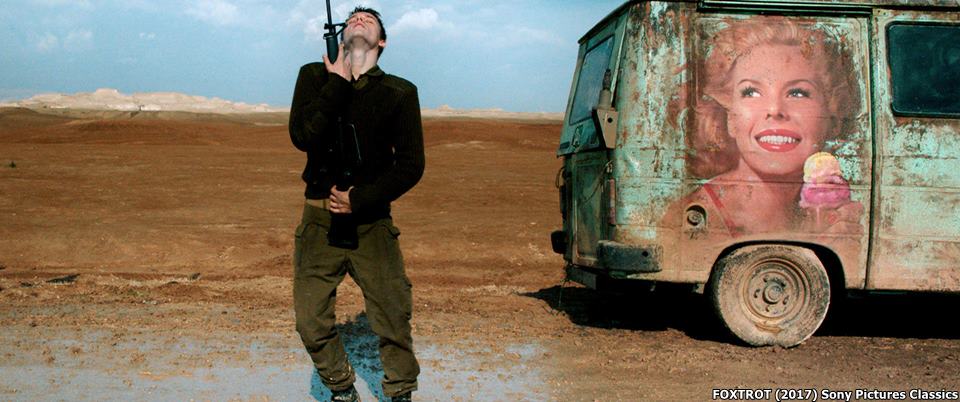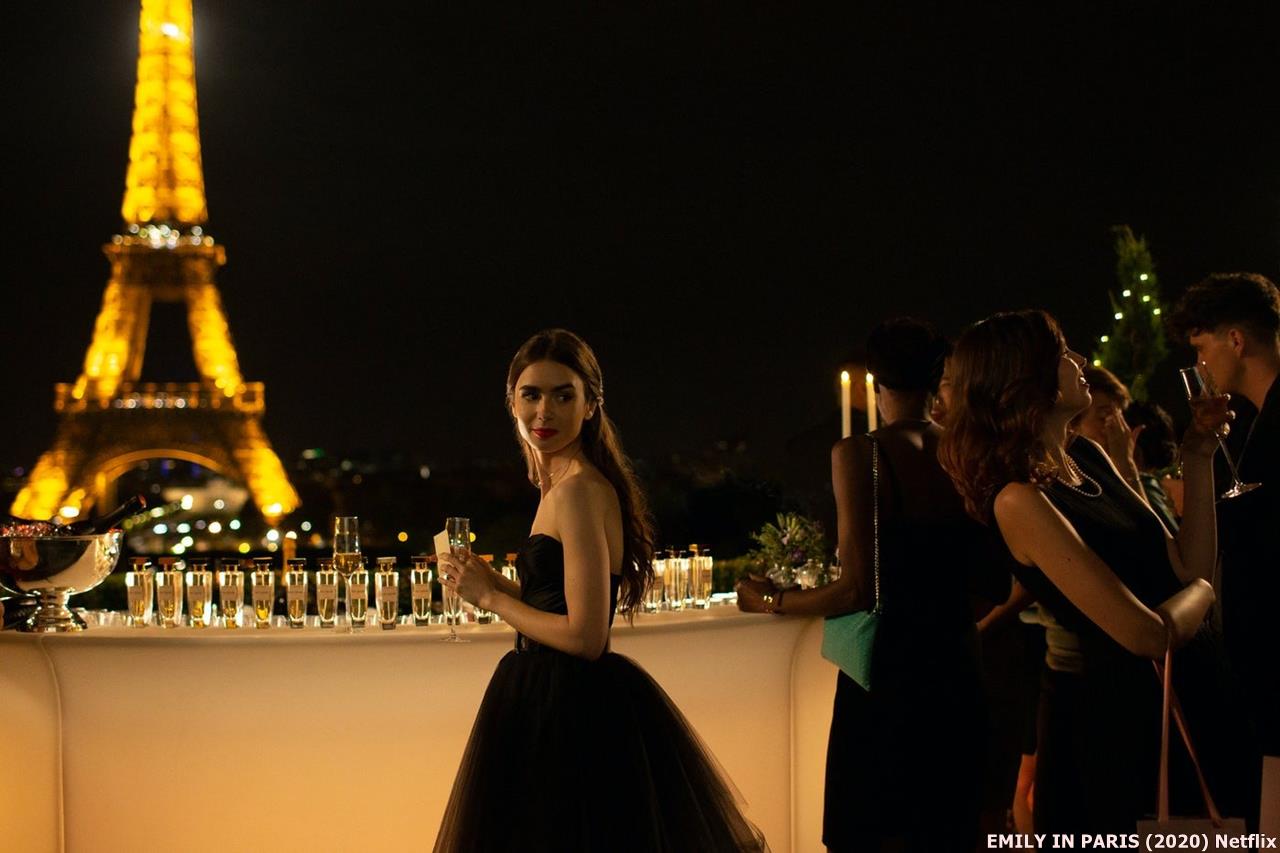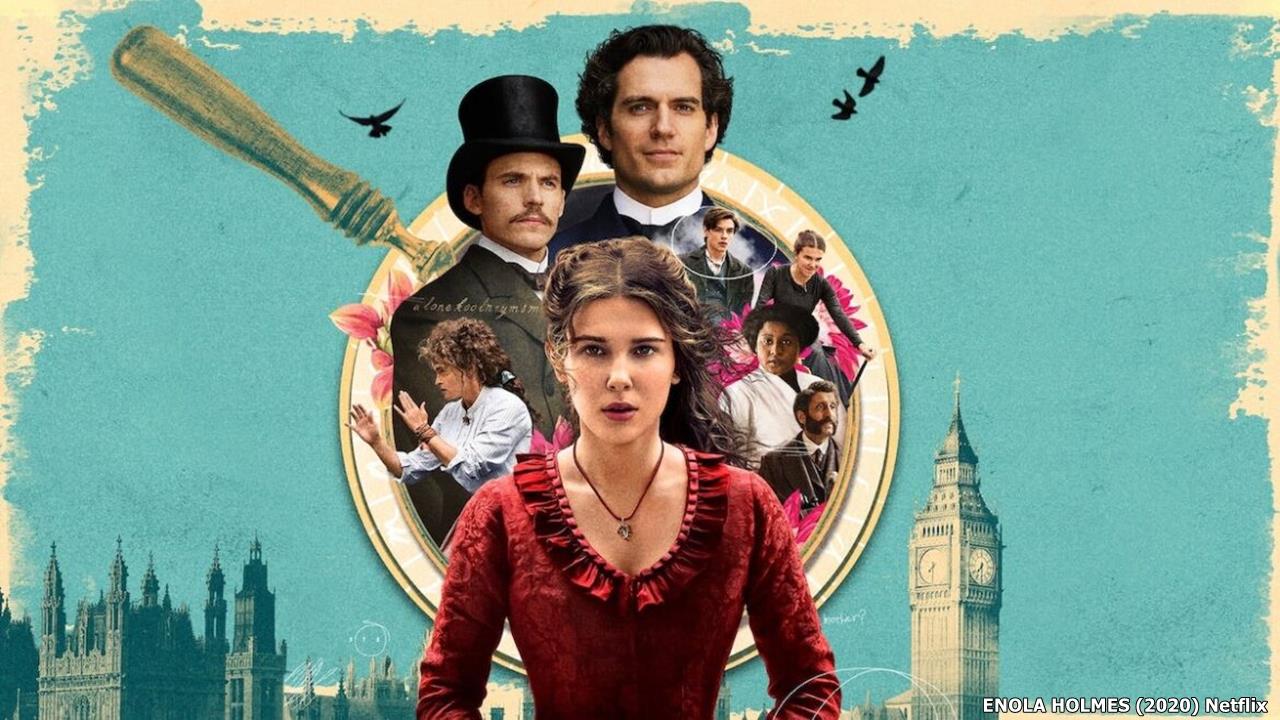FOXTROT(2017) Review
With biting humor and social satire, "Foxtrot" dances with fate. An Israeli couple opens their door, only to see army officials on their doorstep who tell them their soldier son has been killed. Much of the film deals with the young soldier as he mans an isolated checkpoint.
Release date:
March 2, 2018
Studio:
Sony Pictures Classics
Director:
Samuel Maoz
MPAA Rating:
R (for some sexual content including graphic images, and
brief drug use)
Screenwriter:
Samuel Maoz
Starring:
Lior Ashkenazi, Sarah Adler, Yonaton Shiray
Genre:
drama, comedy
COMMENTS FROM WRITER-DIRECTOR
SAMUEL MAOZ
Einstein said that coincidence is God's way of remaining anonymous. Foxtrot is
a dance of a man with his fate. It's a philosophical parable trying to
deconstruct this vague concept called ›fate‹ through a story about father
and son. They are far from each other, but despite the distance and the total
separation between them they change each other's fate, and of course their
fates. The challenge I set for myself was to deal with the gap between the
things we control and those that are beyond our control.
I chose to build my story as a classic Greek tragedy in which the hero creates his own punishment and fight against anyone who tries to save him. He is obviously unaware of the outcome that his action will bring about.
On the contrary, he is doing something that seems right and logical to do. And that's the difference between a casual coincidence and a coincidence that looks like a plan of fate. Chaos is settled. The punishment corresponds to the sin in its exact form. There is something classic and circular in this process. And there is also an irony that is always associated with fate. A structure of a Greek tragedy in three sequences seemed to me like an ideal dramatic platform to deliver my idea.
I wanted to tell a story that would be relevant to the crooked reality in which I, and we, live. A story with a relevant statement - local and universal. A story about two generations - the second generation of the Holocaust survivors and the third generation - and each of them experienced trauma during his army service. Part of this endless traumatic situation was forced upon us and part of it could have been avoided. A drama about a family that breaks apart and reunites. A conflict between love and guilt; love that copes with extreme emotional pain. And as in my previous film, Lebanon, I wanted to continue to investigate, in an intensive manner that combines criticism and compassion, a human dynamic created in a closed unit. The film has a shot where you see a screen of a laptop with a notice of mourning and next to it a bowl with oranges. This frame is the story of my country in four words - oranges and dead soldiers.
When my eldest daughter went to high school, she never woke up on time, and in order not to be late she would ask me to call for a taxi. This habit cost us quite a bit of money, and it seemed to me like a bad education. One morning I got mad and told her to take the bus like everyone else. And if that's why she'd be late, then she'd be late. Maybe she should learn the hard way to wake up in time. Her bus was line 5. Half an hour after she left, I see in a news site that a terrorist blew himself up in line 5, and that dozens of people were killed. I called her but the cellular operator collapsed because of the unexpected load. Half an hour later, she returned home. She was late for the bus that exploded. She saw him leave the station and took the next bus. And I'm still considered lucky because I have girls ...
CAST AND CREW
SAMUEL MAOZ
was born in Tel Aviv in 1962. At 13, he received an 8mm movie camera and a roll
of film. He wanted to recreate a gunfight scene he had seen in a western and
set his camera on the tracks of an approaching train. It got smashed to
smithereens. However, by 18, he had already made dozens of films. As a young
soldier he was part of a tank crew. He trained as a gunner, firing at barrels
of fuel that exploded like fireworks. It felt like a Luna Park game. Only when
war broke out in June 1982, did he learn the horrors of being a gunner. In 1987
he completed his cinema studies, but it took him 20 years more to finally
create his first feature film, LEBANON. He has worn a suit only twice in his
life: on his Bar- Mitzva, and when he won the Golden Lion award in Venice for
LEBANON. Eight years later he wrote and directed his second film, FOXTROT.
2009: LEBANON Feature
2005: THE INSUFFERABLE LIGHTNESS Documentary TV
1999: THE KING LIVES TV Drama
LIOR ASHKENZAI An award-winning Israeli screen, television, and stage actor. He was recently acclaimed for his performance as Micha Eshel, Israeli Diplomat and Prime Minister whose fate is linked inextricably with that of the title character in Joseph Cedar's NORMAN: The Moderate Rise and Tragic Fall of a New York Fixer.
Ashkenazi became one of Israel's biggest stars after his performance as "Zaza" in Dover Kashashvili's LATE MARRIAGE (2001). He won the Ophir (Israeli Academy Award) for Best Actor for LATE MARRIAGE, FOOTNOTE, and FOXTROT, and was nominated for RUTENBERG (2003, Best Supporting Actor) and WALK ON WATER (2004, Best Actor). His other films include: GIFT FROM ABOVE; SIMA VAKNIN WITCH; THE BUBBLE; MELAH HA-ARETZ; WILD DOGS; HELLO, GOODBYE; ELI & BEN; ULTIMATUM, RABIES, YOSSI, BIG BAD WOLVES; THE DUNE; ENCIRCLEMENTS, and as Uriel Shkolnik, a Talmudic scholar with a complicated relationship with his fellow scholar father, in Joseph Cedar's FOOTNOTE. This year Ashkenazi finished shooting THE WANDERERS. Ashkenazi also appeared in a season of the series "In Therapy," the Israeli series that was remade in the U.S. as "In Treatment." Some of his other TV credits includes: "Shabatot VeHagim," "HaEmet Ha'Eroma," "Adama," "The Missionary," "Good Family," "Hazoref," and "The Exchange Principle."
Ashkenazi was born in Ramat Gan, Israel, where he studied acting at Beit Zvi School for Performing Arts. After graduating in 1994, he starred in many plays at Habima and Beit Lessin Theatres in Tel Aviv and the Beersheba Theater in Beersheba.
SARAH ADLER , a French and Israeli actress. She is best known for film roles in JELLYFISH directed by Etgar Keret and Shira Geffen; STONES, directed by Raphael Nadjari; OUR MUSIC, directed by JeanLuc Godard; and MARIE ANTOINETTE by Sofia Coppola. Sarah was nominated for a European Film Award for Best Actress for her performance in OUR MUSIC, and an Ophir Award for Best Actress for her performance in JELLYFISH, which won the Cannes Film Festival's Camera d'or. More recently, she collaborated twice with Amos Gitai in his films ANA ARABIA and TSILI. In 2015, the film AYA, in which Sarah Adler played the title role, was nominated in the short film category at the Oscars.
